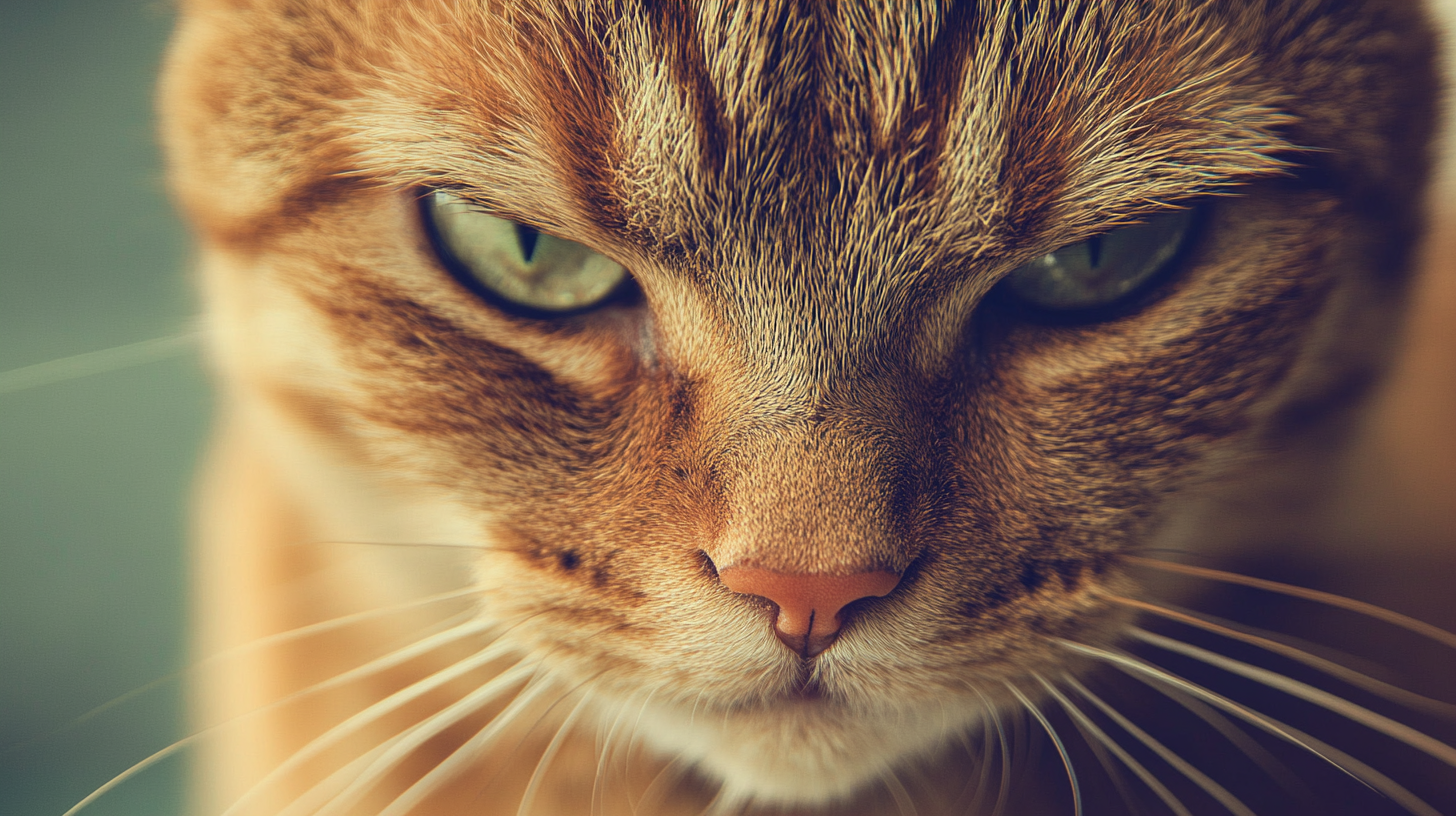Let’s try to understand whether our pets experience any offensive feelings. And is it right to anthropomorphize these emotions? Let’s take the example of dogs, cats, and, let’s say, hamsters (or rats, whichever is closer to you).
So, you got a pet, a lively puppy. The introduction, and in general the acceptance into the family, went well. You became a large pack and established hierarchical roles. But here’s the problem: sometimes your puppy behaves quite strangely and rudely towards you or other people. Let’s take a standard situation as an example: summer, heat, and you, fed up with your tedious job, dashed off to the sea. You joyfully toss your things into the suitcase, while petting the puppy’s head, saying how much you’ll miss it and how sad you’ll be (yeah, right). Anyway, bye!!! Safe travels.
And?.. the puppy is at home, with the family, and nothing threatens him, he is always fed and cared for. There are people nearby who take care of him, play with him, and if necessary, are even ready to treat him. Your heart is completely at ease. Your vacation is flying by quickly, and you really don’t want to come back, but you have to (I understand). You step over the threshold of your home, and a shaggy miracle rushes towards you, but suddenly stops in front of you, tilts its head to the side, and looks at you as if seeing you for the first time. In fact, that’s true; over this week, you’ve become a bit tanner, a bit hairier, and most importantly, a bit older. For your puppy, the acquaintance is happening all over again. You might say it’s nonsense, and I agree, because your voice hasn’t changed (it was precisely to it that the puppy joyfully rushed upon hearing the familiar intonations, but…) you’ve completely forgotten, he is not a human, but an animal, and he relies primarily not on intonations and voice vibrations, but on your scent.

But he is different. Yes, in different countries and different time frames, we smell different, and many factors influence this: food, hormones, nature, etc.
But let’s not delve into it; the puppy already understands that it’s you, gradually getting reacquainted with you, and at some point, he moves away from you and just lies there, looking at you.
“What happened, Baby?” you ask. Not realizing that your pet is essentially upset with you. Offended? Yes, you heard it right, he got offended. For him, your trip means that you abandoned him (even if he is safe and cozy), but still abandoned him, and that’s hurtful. The puppy is trying to rethink – here you are, but for how long? And what if you suddenly want to leave again? A flurry of thoughts swirls in his head, ranging from confusion to joy. He is trying to figure out if he can trust you. At such moments, dogs either become overly clingy or withdraw. In any case, the feeling of resentment is characteristic of dogs, and they can experience it both towards you and towards other people. But is there such a thing as true resentment (the so-called blood feud)? Unfortunately, yes. A dog can remember and nurture a feeling of resentment towards a person for a long time. Moreover, the resentment can stem from something real or, in essence, be imagined (in our opinion). Let’s say we restrict our pet, assert our superiority through force😢, keep the dog in a state of tension, or do something very unpleasant and hurtful to the pet’s inner world. All these negative feelings will accumulate and grow like a snowball. At first, the dog tries to understand what happened, sometimes it tries to appease, sometimes it suppresses its emotions, but the time until an outburst gets shorter and shorter each time. Constant swings in the pet’s emotional state lead to either a violent reaction in response or a slow fade into depression (and yes, they are familiar with this feeling too; perhaps in their world and in their language, this state is called “WILTED MOON” or “SAD TALE,” but nonetheless). And what happens if the dog’s emotions reach their peak—aggression towards people or those weaker in the pack, outbursts, growling and howling, the desire to break and destroy everything? Don’t push your pet’s emotions to the limit. Try to be more attentive and sensitive.

So now it’s cats. Cats?! What’s wrong with them? They live on their own, go on their own – But is it really so?!.
In theory, cats are indeed more independent and freedom-loving animals. Having a pet cat is like having a friend in the building. It’s like living together, but with separate bowls. But even here, we can see emotions like resentment. Throughout their lives, cats adapt to our behavior and adopt a couple of our habits by mimicking us.
“Oh, how cute,” you might say, and you’d be partly right 😁 but they don’t copy us so that you feel emotionally at ease; they do it to be even cuter for you—so to speak, SUBMIT AND CONQUER.
But let’s say you don’t really like animals, or your parent is constantly sneezing from an allergy to fluffy creatures, and unconsciously you start infringing on the pet’s rights. Let’s say: don’t go there, don’t jump here, and so on. Cats are not dogs; they won’t tolerate it for years. They don’t care if you didn’t realize you offended them. They will gladly show you this, and you might end up stepping into their grievance placed in your slipper (which, by the way, you just recently slapped against their fluffy behind). You will see that you have offended the cat as soon as you do. If you go on vacation and forget about your pet, don’t expect joyful meows upon your return. Yes, the animal will be happy to see you and will have missed you the whole time, but you will have to apologize for a long time to earn its forgiveness (treats are welcome). And if the offense is emotionally strong enough, the animal may completely shut itself off and no longer try to please you.
Animals can react to any factors: whether it’s food, a new family member, a cage, or a bed—everything that holds importance and value for them. It is important for them to feel needed and loved, to feel safe and trust you. They cannot tell you what worries or hurts them, and this can lead to breakdowns, petty or major mischief, and prolonged depressions. Show love.

Well, what about the hamsters? That’s where the field of unplowed grievances and tantrums lies. These pets can be driven to the brink by anything; their grievances can reach such a boiling point that their rival will definitely shed a few drops of blood. A new cage, or food, more attention and love – come on, you’ll say – why do they need that love? But they do need it. These little faces want to bask in their owner’s hands, to hear diminutive and affectionate nicknames. After all, for them, your hands are something warm and familiar, a sea of delicacies: from worms to fragrant cheese. And yes, they don’t know how to share you with others. In general, in the animal world, there is no such concept as sharing. So if you treat another hamster to something tasty in front of your pet or if it retains your scent… it’s quite possible that a fight will break out, maybe even resulting in a piece of your ear being bitten off (well, what can you do, maybe Mike Tyson got offended too) or your finger getting hurt, so to speak, for the future, so you know – don’t offend me, I can get jealous, angry, and I can also scream and even bite.
SOMETHING REMIND YOU?! Yes, we react the same way when we have nowhere to put ourselves emotionally. Therefore, show love and patience. Don’t hurt your pet, but if it happens, try to understand its feelings, calm it down, and restore trust and warmth in your relationship. Ask for forgiveness not with words, but with actions. Believe me, it’s harder for them; they can’t just tell you – buy a fur coat – and I’ll forgive you (joke).

